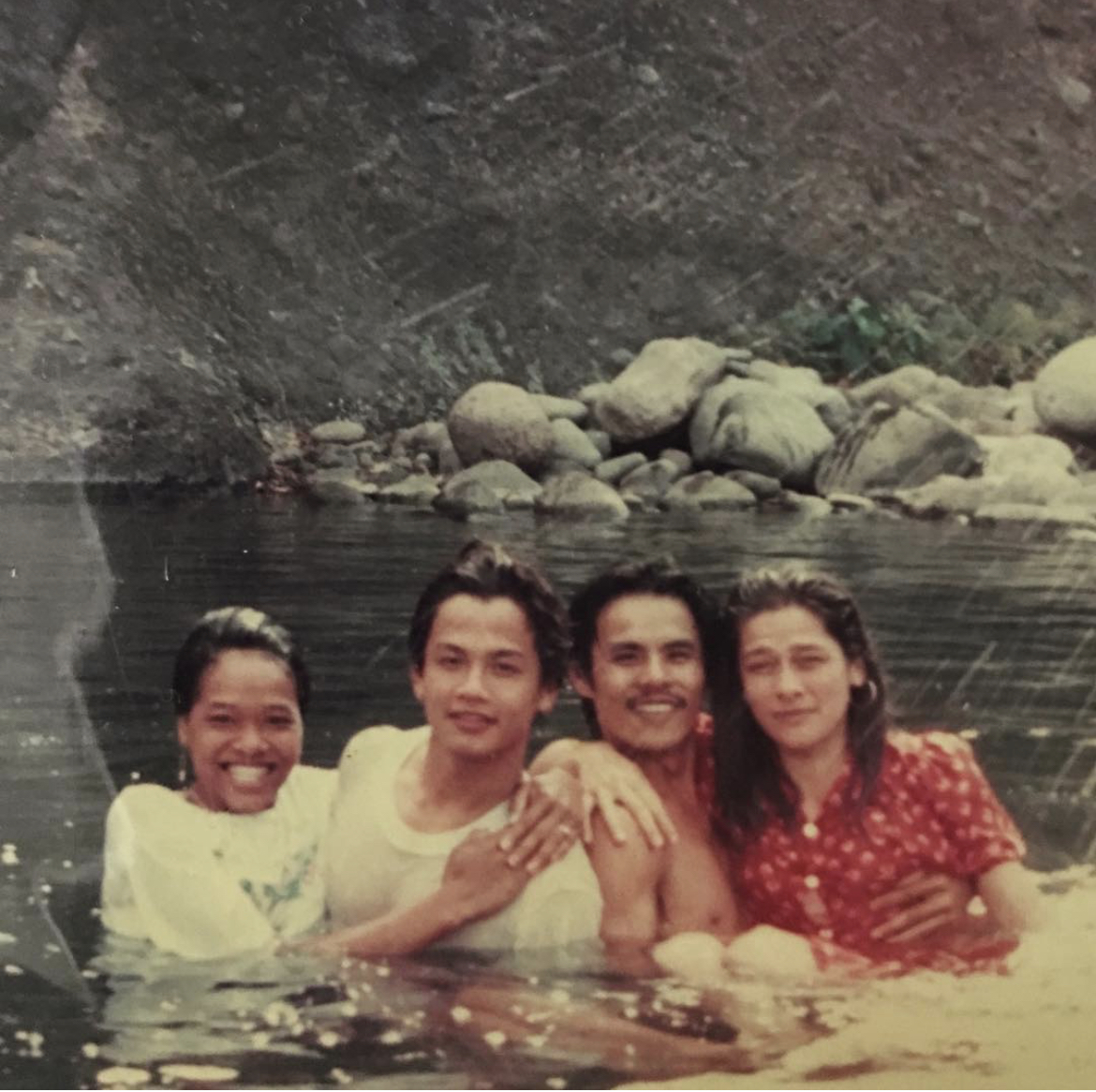For Asian Pacific American Heritage Month, Diverse Elders Coalition staff Lauren Pongan and Ocean Le sat down to talk about the significance of the month for them…

Lauren’s dad and his family saying goodbye at the airport in Manila, Philippines on the day her Lola (grandmother) immigrated to the U.S.
Lauren: APAHM 2021 is almost over, but I just wanted to take a minute to catch up about this month and what it means for each of us. What’s been on your mind this May, or what are you reflecting on?
Ocean: A lot to be honest, my mixed heritage as a Nigerian–Vietnamese person, how that interplays with what’s going on right now across the US with this increase in AAPI hate crimes and my role in all this…Haha that was a lot, how about you what are you reflecting on?
Lauren: I also identify as mixed race Asian American, and I feel really connected to my Filipino roots. As a mixed race person, I think about labels and identity all the time. Especially lately. Like a lot of folks from our Asian American community, I’ve been thinking a lot about the “AAPI” umbrella, and how our communities come together, and how they’re distinct.
Ocean: Yeah, I think this year especially it makes you think about the commonalities and differences in our Asian identities. It truly is an umbrella term. Some people who are considered Asian don’t even consider themselves Asian or identify with their Asian heritage. Vice-versa, some people who are of Asian heritage are not viewed or accepted by the Asian community. Are Southeast Asian Americans considered Asian Americans? This is hurting my brain, to be honest.

Ocean’s mom and dad (left couple) with some friends rendezvoused in the Philippines before immigrating to the U.S.
Lauren: Ha. I hear you on the headache.
It’s frustrating to me the way that the Asian American narrative is portrayed as a singular story — as if we’re a completely uniform group. There’s so much diversity in the Asian American community, but there’s also a lot that’s shared. And that doesn’t even get to the conversation about how Pacific Islanders and Native Hawaiian communities are or aren’t included in that.
It particularly grates on me when Asian Americans are portrayed as silent, or white adjacent, when we know that there’s a long history of activism, allyship, and fighting for social justice in our history.
Ocean: I 100% agree with you, and that’s why disaggregated data is so important not only from a race standpoint but for health reasons also. Regarding Pacific islanders and Native Hawaiians, it’s almost region based rather than ethnicity/race based. We’ll include Pacific Islanders and Native Hawaiians with Asian Americans since you are all from the pacific.
I am from Hawaii, born and raised in Kalihi and I can earnestly tell you that the Hawaiian culture has been completely decimated on some parts of the Islands. There aren’t many native speakers left and they continue to fight for their sacred lands from further colonization. It’s an ongoing battle but just like the native land, Native Hawaiians ain’t going anywhere and will continue to advocate for what is theirs’
Lauren: In spite of the difficulty in inclusively defining what it means to be AAPI, when I think about this past year, what I’m most proud of for the AAPI community is the way that we’ve become a strong electorate in a lot of key elections. AAs and PIs alike are recognizing that their votes matter, and electees are starting to recognize that, and listen to AAPI’s needs.
And not only are people realizing that they should vote—they’re also running for office!
Ocean: Yeah it’s a great thing to see and many from the AAPI community understand the power that they have in policy. We got Kamala Harris as our VP! That’s a thing to celebrate! I look forward to the new generation of AA and PI leaders and whatss to come but I also want to honor those trailblazers who paved the way for what we see now. Back when it wasn’t cool, you had Daniel Inuoye, Mazie Hirono, Spark Matsunaga.
I am a bit of a pessimist but to me this is only the beginning and we need to continue to fight and persevere for equitable policies for diverse communities. We’ve seen it before, Diverse Faces in High Places… but yet here we are. THE MARATHON CONTINUES!
Shout out to our Asian American and Pacific Islander communities!

